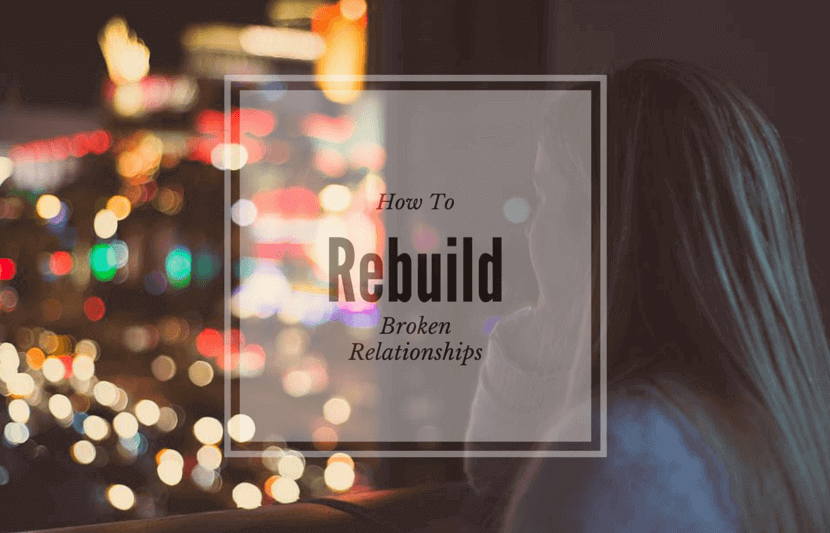Forming relationships is hard, maintaining relationships is harder, and remedying broken or underdeveloped relationships is the hardest. When dealing with people, there will be complications. When dealing with feelings, frustrations will arise. But know this: no matter how damaged or astray the trajectory of a relationship, there is always hope.
Here are 3 ways to improve your relationship with people that you don’t naturally “click” with:
1. Don’t always trust your feelings – feelings are fickle.
Feelings are important, yes, but they are fickle and therefore not to be trusted. Instead of letting your feelings decide your actions, let your actions alter your feelings.
How? ➳ Use the Benjamin Franklin Effect to your advantage!
This seemingly counter-intuitive theory states that we come to like people for whom we do favors. Why? Because we love to justify our actions. If we go out of our way to do something for someone, that person must be worth our time and effort. In this sense, actions precede, and even determine, our emotions.
And how can we practically apply the Benjamin Franklin Effect in our relationships with people?
If there is someone you just can’t seem to “click” with, don’t give up! Try doing them a favor (put down your pride for a moment) and see if your feelings follow your action’s lead.
Feel like that’s being too “fake” or “trying too hard”? You won’t know how you feel about this until you try it. ;]
Bottom line: YOU have authority over your feelings (not the other way around) and the ability to change how you feel about people and circumstances.
2. Speak the Right Love Language!
If you speak English to someone who only speaks Spanish, chances are, they’re not going to understand you. It’s the same with feelings and emotions. If you communicate your love in a language that someone does not understand, your love will not be communicated clearly. Even if you feel like you did everything you possibly could to convey your feelings, the other person will simply not understand.
So, what can we do to ensure that our love gets communicated?
➛ Find out your partner’s love language, and learn to speak it! (You can also request that they learn and speak yours).
According to Gary D. Chapman, there are 5 love languages:
1) Quality Time– you feel loved when your partner gives you absolute, undivided attention.
Example: doing an activity together with no outside interruptions.
2) Words of Affirmation– you feel loved when the other person uses words to affirm you.
Example: praising you in public or expressing gratitude in private.
3) Acts of Service– you feel loved when the other person does things for you without you having to specify what you need them to do (actions speak louder than words!).
Example: bringing medicine and taking care of you when you’re sick.
4) Physical Touch– you feel loved when there is physical contact.
Example: giving you a big hug after a long day.
5) Gifts– you feel loved when the other person gives you gifts.
Example: giving you a small but thoughtful gift on an ordinary day.
Is there someone you want to get to know better? Find out their love language and speak it!
Is there someone you have given up on because of previous failed attempts at building a relationship? See if you have been speaking the right language.
If you haven’t been speaking the right love language, then change the way you speak – you’ll start to notice changes in their responses.
Bottom line: A good relationship is one in which each person speaks the love language of the other.
3. Learn to listen.
Listening is one of the most important life skills that we don’t hear enough about. Since people are naturally and instinctively attracted to speakers who exude confidence, charisma, and charm, listening (as a skill) can comparatively seem less desirable.
But, when it comes to one-on-one, I would argue that a good listener is much more attractive than a great speaker.
Think about it: a great speaker can inspire us with their words, but a great listener can encourage us without saying a single word! Their presence alone has the power to uplift souls.
Bottom line: A good conversation is one in which each person is interested in the other, not themselves. Want to “connect” with someone on a deeper level? Hear them out. Listen to their stories. Empathize with them.
[divider]
Relationships are hard, and they take a lot of work. But no relationship should be “too damaged” to the point of no return.
Just remember, the common factor in all of the three tips above is: be intentional.
To make relationships work, make plans louder than your pride, and make exceptions rather than excuses.
[🔸This post was originally published on The Young Hopeful.🔸]



